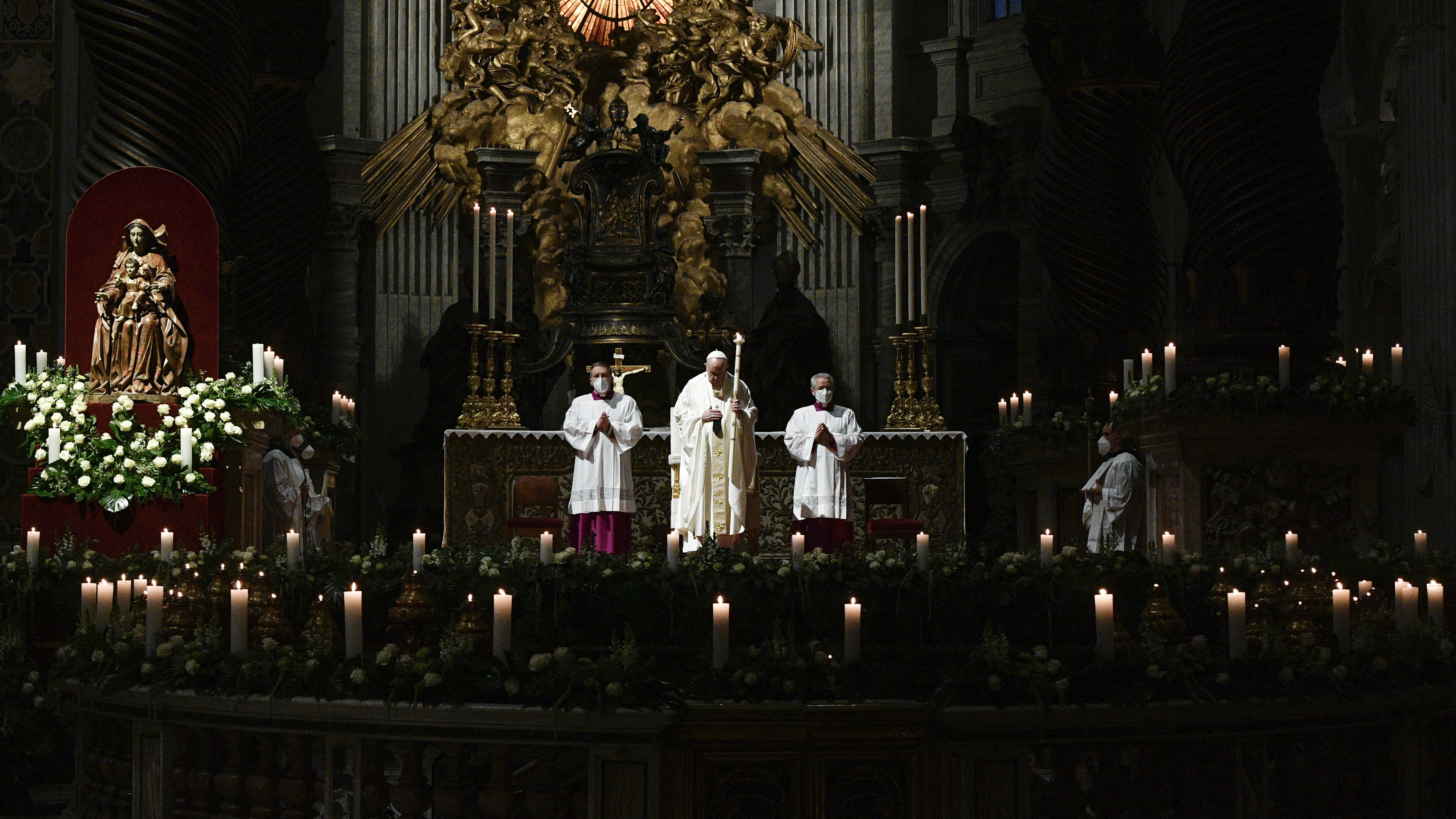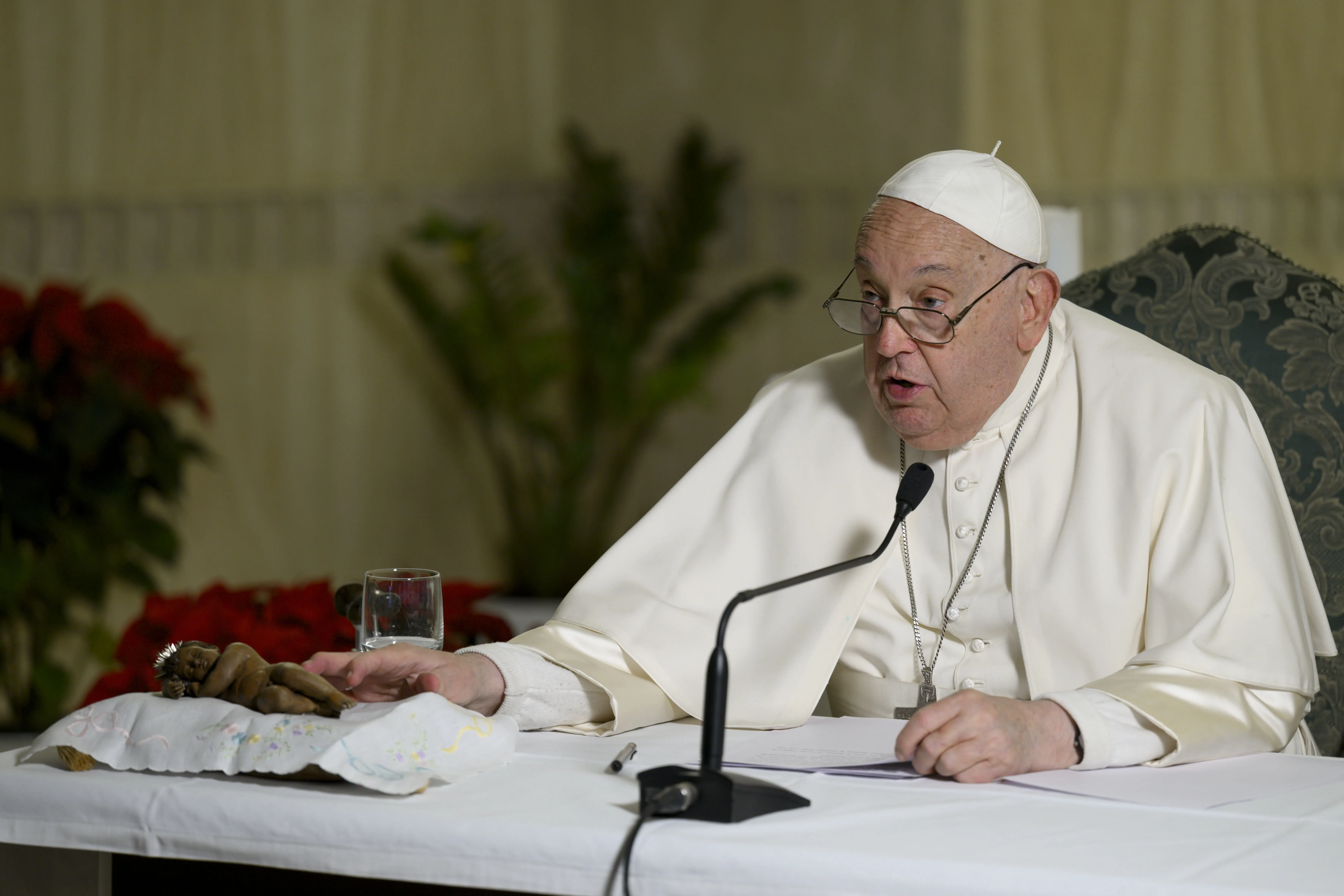“While the Spirit leads us to recognize God in the smallness and fragility of a child, we sometimes risk thinking about our consecration in terms of results, goals, success: we move in search of spaces, visibility, numbers: it is a temptation. The Spirit, on the other hand, does not ask for this. He wants us to cultivate daily fidelity, docile to the little things that have been entrusted to us,” Pope Francis said.
He also praised the beautiful fidelity of Simeon and Anna, as shown in their daily visits to the temple to wait and pray even if nothing seems to happen. They waited their whole life without discouragement or complaint.
The pontiff offered more questions for reflection: “What love drives us to move forward? The Holy Spirit or the passion of the moment, which is anything? How do we move in the Church and in society?”
“Sometimes, even behind the appearance of good works, the worm of narcissism or the craving to be the leading character can be hidden,” he warned. Other religious communities, even while doing good things, seem motivated by “mechanical repetition” rather than “the enthusiasm to adhere to the Holy Spirit.”
He encouraged the congregation to reflect on what their eyes see.
(Story continues below)
“Simeon, moved by the Spirit, sees and recognizes Christ. And he prays, saying: ‘My eyes have seen your salvation’,” the pope continued. “Here is the great miracle of faith: he opens his eyes, transforms the gaze, changes the view.”
“As we know from many encounters of Jesus in the Gospels, faith is born from the compassionate gaze with which God looks at us, melting the hardness of our heart, healing his wounds, giving us new eyes to see ourselves and the world.”
This new vision is not naïve, but wise. It sees even the “most painful” things. It does not ignore reality or pretend that problems are invisible. Rather, one’s eyes must know how to “see within” and to see beyond appearances.
“The elderly eyes of Simeon, although tired from the years, see the Lord, they see salvation,” the pope said.
He lamented some worldly attitudes that see religious life as a “waste” for men or women, or see it as outdated or something useless. He also warned religious communities against “looking backwards” or nostalgia “for what no longer exists.” Rather, they should be capable of “a far-sighted gaze of faith,” capable of hopeful vision that is open to the future.
God gives signs inviting us “to cultivate a renewed vision of consecrated life.”
He warned about a rigid approach to tradition that pretends not to see these signs and continues“as if nothing had happened, “repeating the same things as always, dragging ourselves by inertia into the forms of the past, paralyzed by the fear of change.”
He also warned against “the temptation to go backwards, out of security, out of fear, to keep the faith, to keep the founding charism.”
“Let's get it right: rigidity is a perversion, and under every rigidity there are serious problems,” he said.
Even in their old age, Simeon and Anna did not show regret for the past but “they open their arms to the future that comes to meet them.”
“Neither Simeon nor Anna were rigid, no, they were free and had the joy of celebrating: him, praising the Lord and prophesying with courage to his mother; and she, like a good old lady, going from side to side saying: ‘Look at these, look at this!’ They gave the proclamation with joy, their eyes full of hope. No past inertia, no stiffness.”
Even behind genuine crises, including a lack of vocations, the Holy Spirit “invites us to renew our life and our communities,” and God will show the way to do this for those who open their hearts with courage and without fear.
“Let us place ourselves before the Lord, in adoration, and ask for eyes that know how to see the good and see the ways of God. The Lord will give them to us, if we ask for it,” said the pope.
Kevin J. Jones is a senior staff writer with Catholic News Agency. He was a recipient of a 2014 Catholic Relief Services' Egan Journalism Fellowship.








